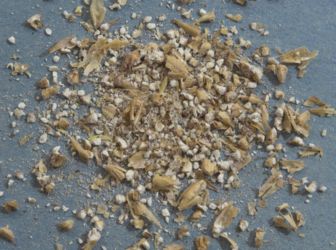dttk0009
Well-Known Member
Hi everyone,
I took about a 4 year hiatus from brewing due to having to move countries, but I finally got around to getting everything set up.
To cut to the chase, I thought I'd try something a bit experimental and brew somewhat of a hybrid witbier. I wrote up a recipe for a 5 liter (1.3 gallon) batch and used the following grains:
Pale malt (2 row): 300g - 33.3%
Flaked wheat: 300 g - 33.3%
Dark what malt: 200g - 22.2%
Caramunich Malt - 11.1%
The OG estimate was set to be around 1.049. I measured before pitching the yeast and I had hit 1.040 at around 3.5 L. At that point I didn't want to top up to 5 as it would just dilute it more.
On top of that, the mash temperature got a bit hot at one point for about 5-10 minutes (167F). For this batch I just did a mash and sparge, mashing at 3L/kg.
Could the sub-par efficiency have anything to do with my choice of grains? Any additional steps I should have taken with this grain bill? Was it the slightly hot mash period?
I brewed a bigger pale ale batch previous to this one and it turned out really great, so I'm a bit disappointed this one didn't turn out so good.
Thanks in advance for the advice!
I took about a 4 year hiatus from brewing due to having to move countries, but I finally got around to getting everything set up.
To cut to the chase, I thought I'd try something a bit experimental and brew somewhat of a hybrid witbier. I wrote up a recipe for a 5 liter (1.3 gallon) batch and used the following grains:
Pale malt (2 row): 300g - 33.3%
Flaked wheat: 300 g - 33.3%
Dark what malt: 200g - 22.2%
Caramunich Malt - 11.1%
The OG estimate was set to be around 1.049. I measured before pitching the yeast and I had hit 1.040 at around 3.5 L. At that point I didn't want to top up to 5 as it would just dilute it more.
On top of that, the mash temperature got a bit hot at one point for about 5-10 minutes (167F). For this batch I just did a mash and sparge, mashing at 3L/kg.
Could the sub-par efficiency have anything to do with my choice of grains? Any additional steps I should have taken with this grain bill? Was it the slightly hot mash period?
I brewed a bigger pale ale batch previous to this one and it turned out really great, so I'm a bit disappointed this one didn't turn out so good.
Thanks in advance for the advice!




